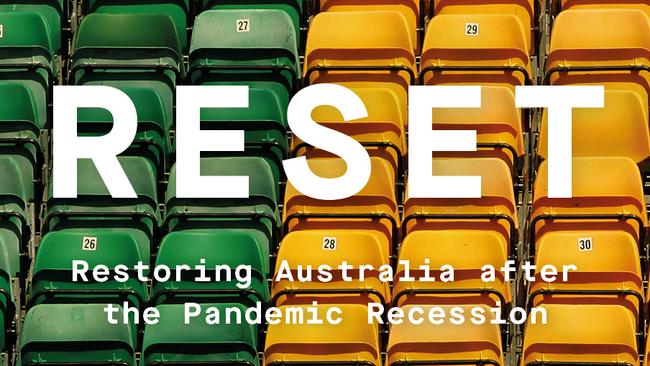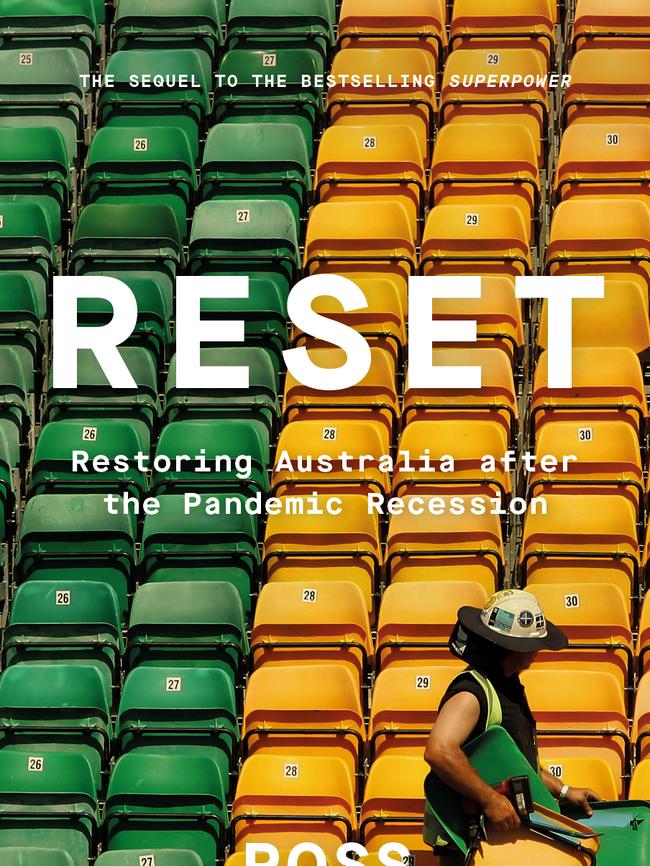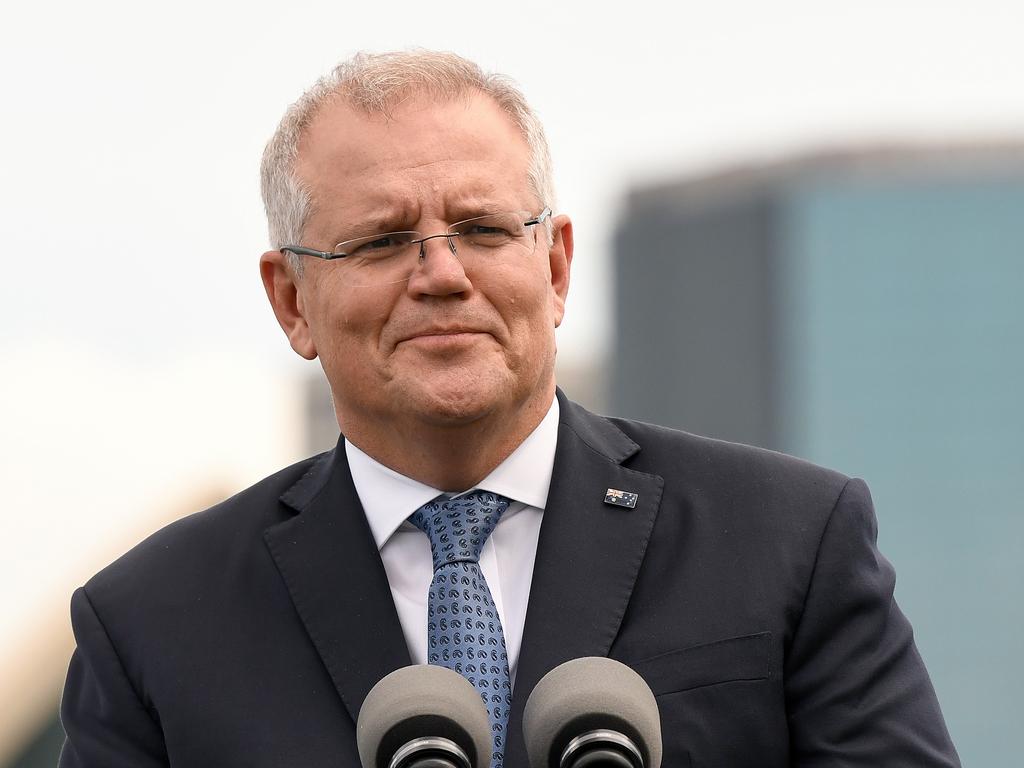Opportunity knocks — open the door, PM
One good thing to come out of the global recession is the chance for change. Cometh the hour, cometh the man?

Let’s face it, as much as politicians like to strut around the corridors of power in Parliament House and ride in the white car with the flag on the bonnet, all the while imagining they are on the set of The West Wing, most don’t leave much of a mark. The same goes for ministers, who tend to become captured quickly by their departments, no matter how many ideas they floated early in their political careers.
Even the few who rise to become prime minister don’t really achieve a lot. If you think about the game-changing achievements of modern prime ministers, at best they can point to a handful of meaningful reforms they have championed. Bob Hawke oversaw important micro-economic reforms and the Accord with the unions. Paul Keating was responsible for the introduction of superannuation. John Howard broadened the tax base with the GST and reformed gun laws. Kevin Rudd said sorry to Indigenous Australians. Julia Gillard introduced a price on carbon, only for Tony Abbott to repeal it. Malcolm Turnbull oversaw the introduction of same-sex marriage, although by the time he did so Australia was already a global laggard and it really was the people’s achievement anyway via a popular plebiscite.
Other than presiding over the pandemic, albeit successfully, so far Scott Morrison has yet to achieve anything meaningful, something he may want to discuss with Jenny this weekend.
We have to go a little further back when surveying prime ministers to zero in on some of the most meaningful reform that has shaped Australia today, certainly in terms of social policy. In the 1970s Gough Whitlam introduced universal healthcare and free university education. The former continues today, the latter has been replaced by the HECS system, but the purpose of ensuring accessibility has been maintained.
The process of the modern politician becoming captured by bureaucrats has evolved. Politicians these days are less impressive; they have narrower pre-parliamentary careers than they once did, the political advisers they surround themselves with are more callow and partisan, and governmental departments are larger and more controlling — more partisan, too, which curtails quality public policy debate.
In the media age in which we live, politicians must spend more time acting as performing seals: fronting the cameras, practising their lines and immersing themselves in the theatre of politics, a superficial art. Then there is the time MPs must spend attending party political events and fundraisers. There are only so many hours in the day and all this means there is less time to think about bold policy reforms.
The nature of the modern news cycle makes bold reform that much harder to achieve. There is instant unpicking of ideas on often tedious grounds, with claims and counterclaims that the numbers don’t stack up. But for the numbers to stack up, the ideas first need to have been put through rigorous departmental modelling, which often leaks, killing ideas in their infancy.
This also reduces the chances of oppositions developing meaningful policies because they don’t have access to such resources. Bill Shorten’s 2019 election defeat with a big-picture agenda — whether one agrees or disagrees with said agenda — makes it that much less likely that we’ll see oppositions be so bold in the future.
Which means governments are our only hope. One good thing to come out of the global recession the coronavirus caused is the chance for change; the capacity to re-embrace meaningful reforms.
This is the subject of renowned economist Ross Garnaut’s new book, Reset: Restoring Australia after the Pandemic Recession.
Garnaut’s prequel to Reset was his book Superpower, in which he detailed the opportunities associated with pursuing economic reforms around climate change action, also explaining the opportunity costs of not doing so.

Reset is his attempt to explain why now is the time to consider radical (but reasoned) ideas that the political system would usually render impossible to achieve. These include a universal basic income and replacing corporate tax with a tax on cashflows. I’m not going to try to justify such complex and contested propositions in a few hundred words when Garnaut used tens of thousands to do so. Read his book. Or don’t, be sceptical and prove the point already made that the superficiality of debate has overtaken a more in-depth way of approaching policy.
Garnaut’s book makes a cogent case for why now is the time to reform, thereby observing the old adage about never letting a crisis go to waste. Too often reforming ideas, especially on tax, are met by criticism that such reforms aren’t revenue neutral. That is, they will cost the budget in the short term, which makes them politically unpalatable in an era of shallow misinformed debate about the need to get budgets “back in black” for no other reason than because.
Does that ring a bell?
But in the wake of the extraordinary spending decisions last year, there will be wall-to-wall deficits the years ahead and our politicians have become resigned to that. So has the public, which no longer is drawn into political combat tearing down one side or the other for “fiscal recklessness” if it can’t chart a short-term course to a balanced budget.
This shift, which may not last long, provides politicians and policymakers with the opportunity to institute meaningful reforms that have long-term benefits, although they poke a further hole in the budget in the short term. Garnaut articulates the case for a universal basic income on just such grounds. He makes the point that, yes, it is expensive in the short term but across time the impact on the participation rate and innovation and entrepreneurial spirit will pay huge budget dividends, to say nothing of its value as a means of reducing inequality — inequality being something most economists acknowledge has a profound adverse effect on economic growth and prosperity.
As Garnaut writes: “We are kidding ourselves if we think that such extreme divergence of fortune among Australians is consistent with social cohesion and effective democratic government as we deal with intractable domestic and international problems.”
Cometh the hour, cometh the man. Prime Minister, over to you.
Peter van Onselen is a professor of politics and public policy at the University of Western Australia and Griffith University.







The pandemic and the impact it has had on the budget present the Coalition government with a unique opportunity: the chance to do something. I don’t mean simply preside in office, tinkering at the margins of policy or holding media conferences claiming to have achieved meaningful reform. I’m talking about actual substantial change.